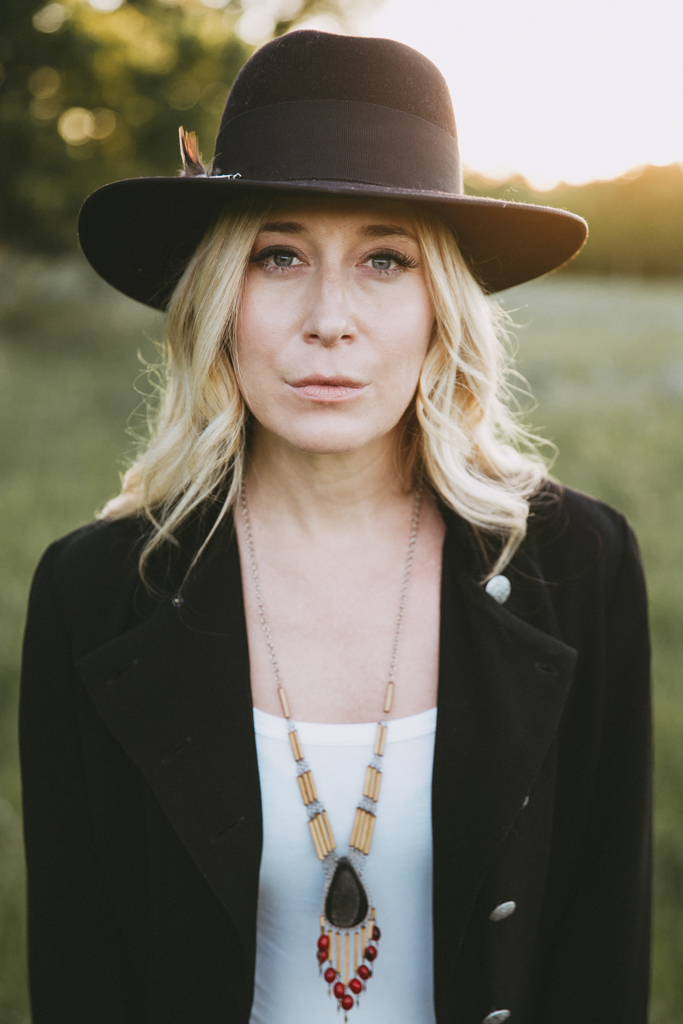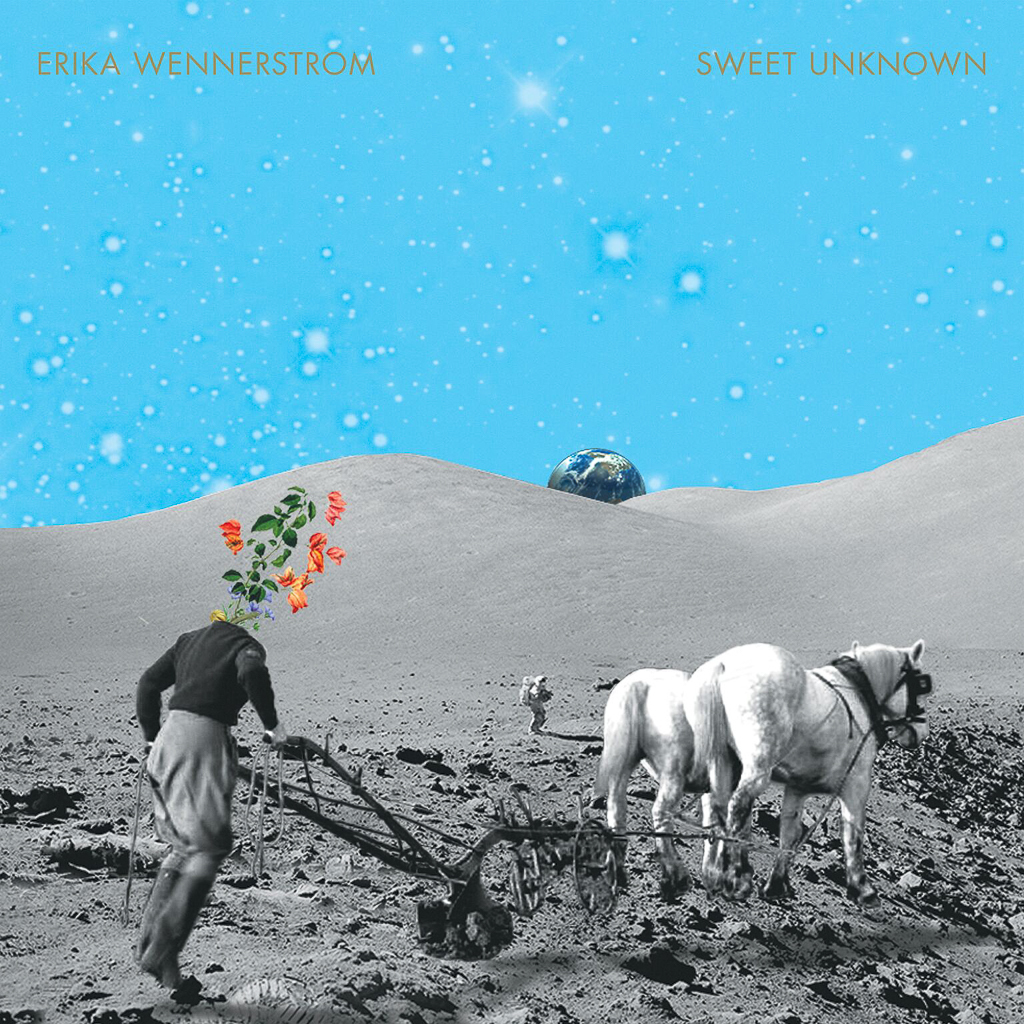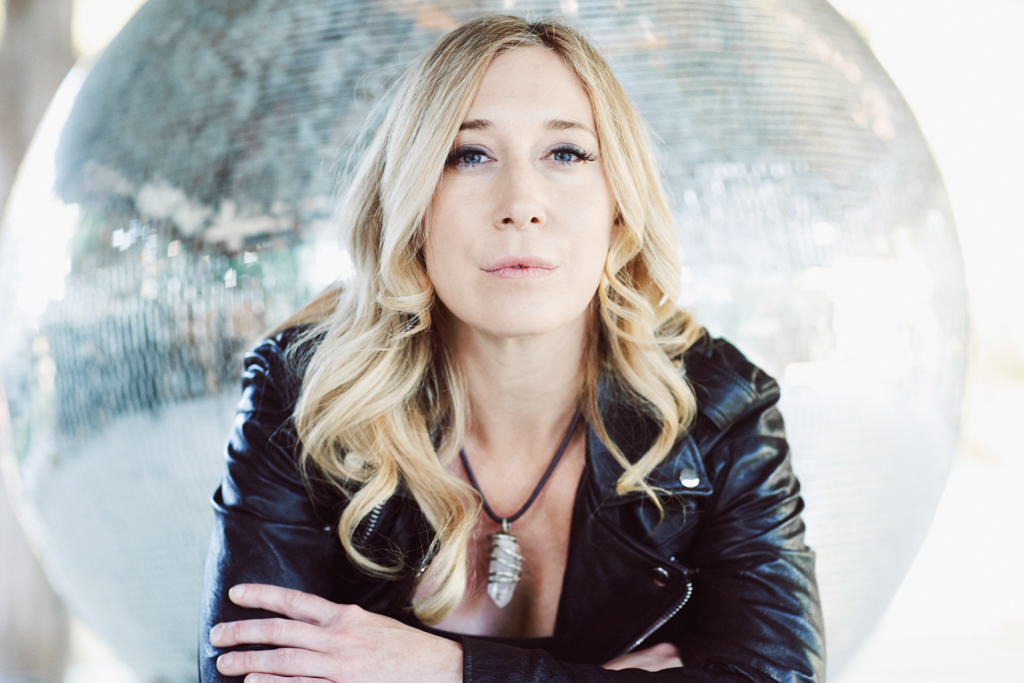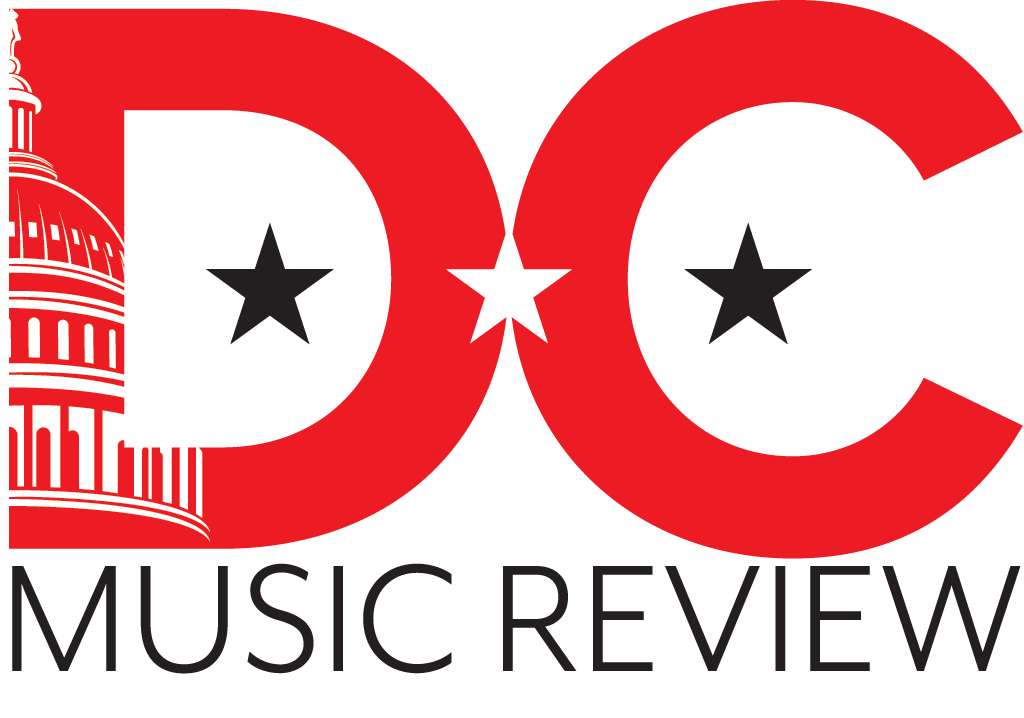Karin McLaughlin: Erika, thanks for taking the time, I’m super excited to be able to talk to you, I’ve been listening to this album and it’s struck a chord in me emotionally that I can’t even explain. Then I read your bio and the process that you went through writing and putting this album together and it’s so interesting. I’m interested in this on a musical and personal level, so I’m glad I get to ask you some questions about it. So, can you kind of go over and give us a brief background of your musical career up until putting out this album and then we’ll get into the album itself in depth.
Erika Wennerstrom: Well, I started the project Heartless Bastards, which was initially a recording project back in 2003, maybe even 2002 and then I assembled a band in 2003. The first album came out a year later on Fat Possum Records and the first album came out in 2005, so I’ve been doing that ever since then. The last album that we released before we went on a hiatus was in 2015, Restless Ones, and I did a lot of great stuff in between, lot of great tours with artists, played Austin City Limits and Letterman and stuff like that, so I’ve experienced a lot of great things.

Erika Wennerstrom - Photo Credit: Briana Purser
KM: So as a part of Heartless Bastards, you guys put out, I think it’s five albums right? Or is it more than that.
EW: Uh-huh.
KM: Now a lot of people tend to think that often times when an artist breaks off to do a solo project it’s because they aren’t getting what they need out of the band or the band isn’t successful, but that doesn’t seem to be the case here. It seems like you just had an itch that needed to be scratched.
EW: Yeah, well it’s a little complicated because I had a couple different lineups of the band. It’s kind of been my project, but I think that I’ve played with the same band, the second lineup, for eight years and they were my team, they’re on the last two albums, but they toured with me for the last three. I just felt like they were my team at that point and when they wanted a hiatus, I thought, ‘Well, what do I do now?’ I got real inspired and wrote all these songs and then I thought, if they’re on hiatus and wanting different things in their lives, I kind of felt like just getting a different band under Heartless Bastards didn’t feel right or appropriate to me. Even though it’s my project and I do the songs, they’re my team and it just didn’t feel right, you know? I was doing a lot of growth and self-exploration and it felt like a good time to stand on my own two feet with my own name and just give that a go. There were also other challenges with that name, internationally touring, like you couldn’t even say the name of the band on the radio in England and it doesn’t always translate exactly the same.
KM: That makes total sense. You guys are based out of Austin and that city is really kind of becoming or has been, I guess for a while, a central location for so many young people and so much creativity and growth and music – obviously as you mentioned earlier, they have Austin City Limits, which is a huge festival. How much do you feel, if at all, Austin helped you guys grow as a band and/or foster some creativity being around that scene, helping as a creative area and outlet.
EW: I’m sure it did in some ways, it’s just hard to say if a lot of similar growth or different opportunities would’ve happened if I was still in Ohio. I think as long as you, as an artist, are willing to tour, it really doesn’t matter where you are in a lot of ways, as long as you take the time to get out and reach people with what you are doing. I was still living in Ohio for my first two albums and had had a lot of growth with that too so I think that with any artist, as long as they keep releasing material and people are responding to the material, then they’ll just keep growing. Guided by Voices is from my hometown, The Breeders, and different folks. I’m sure that there were opportunities that came with being local to Austin that I got, but I guess it’s tough to say in some ways.

Erika Wennerstrom - Sweet Unknown - Released March 23, 2018
KM: This album, Sweet Unknown, just looking at the titles of the tracks, you can tell that there’s a lot of soul and soul-searching within it and then listening to it you can really tell. Then I read the process that you went through to create this album and it was quite a journey.
EW: Yeah, I mean, I will be clear though, like when I went and did the ayahuasca retrea,t for instance, I didn’t do it for the creative process, but it certainly ended up helping. I’ve always written from my life and I’m just processing it. I take all these experiences and then it inspires what I write. I had a lot of stuff I was working on internally and that was a lot of the inspiration for my work. I feel like I always kind of am on all my albums. On the five Heartless Bastards records that I’ve done, I’ve been searching and searching and then I kind of came to the realization that I’ve been somewhat searching for self-love and that’s something takes constant work and it’s a constant process. You don’t just reach a point where you just totally love yourself. (laughs)
KM: If it were only that easy….
EW: Yeah, even just the realization of that. It’s like you can’t fix an issue or a problem in your life when you’re just not aware of it. On Into the Open, which is a song on the second album, I say “Home is where I am” and the idea with that song is the idea of home is with myself and in my own skin. Being comfortable in just different situations in my life. There are certain situations and certain people in my life that I can always be comfortable around but just the idea that I can be comfortable with myself when I’m put in different situations and when change is brought into my life, you know? The things in your life that you can’t control. I don’t want to say that I’ve fully found self-love because it takes constant work and reminding yourself to be kind to yourself. I think I just didn’t understand that. I thought I always had self-love and I don’t think that I actually did.
KM: You briefly touched on your trip to the Amazon, and I also read that you spent a lot of time in Big Bend on a quest to learn more about yourself - I get the feeling that you did this alone, is that accurate?
EW: Yeah.
KM: So is that something that you normally do, these solo trips? Or was this a special occasion with a mission as part of the journey?
EW: I just feel like when I went on my trip to the Amazon, it was before the release of Restless Ones, I felt like I had been kind of, unhappy in my life and the album was getting ready to come out and I wanted a little – with the gap of time that I had off – to do something, I don’t’ really know how to say it – absent of ‘white culture’ or much more commercialized culture. I didn’t feel like Europe was it, I wanted something different. I was a little afraid of the idea of doing ayahuasca, but I feel like you can’t have the reward without the risk and that I should maybe take that risk. I do a lot of research when I go anywhere, especially by myself, so if anyone is reading this and their interest is sparked, definitely do your research, just for your own piece of mind. You read a lot of stuff where they put a negative and uneducated spin on things because of fear or the unknown but you really just have to dig deeper. You really have to approach life with more love than fear and trust your gut. There are always situations that you can put yourself in that can be dangerous, but you just have to be informed and smart about it and chances are that can be avoided. I went to the Amazon in May of 2015 and then the band was touring and the album came out a month later and then I think in the beginning of 2016 in January, when the band was talking about taking a hiatus, that February I went to Big Bend in west Texas. I think connecting with nature can really just give you a lot of perspective.
KM: In this journey for self-discovery and self-exploration – without sounding too hippy-dippy, how much did nature have of an influence - I would expect positively - on your self-love quest?
EW: It was huge. In all honesty, when I was there, I didn’t know what I was looking for, it was just part of this process of figuring myself out. I honestly think the whole world, and honestly – you used the term hippy-dippy and I use that term a lot too – I feel like it’s just, everybody is searching for self-love, even if they don’t realize it. When you care about what anybody thinks, that, in a sense is the difference between what’s ego and what you project to the world versus what is actually you and what you really want. Like when you get a career or a good job, is that the idea of success that society tells you should have or is that what you really want? I mean, there’s people that have millions of dollars and people that can see that they are successful but they’re still miserable. Anthony Bourdain is a huge example of that. I felt like everybody loved Anthony Bourdain. He was so likable and he had such an interesting life. I mean, he’s talked to presidents and gone all over the world to these interesting places, and yet he killed himself. I think perception of success and happiness is so different from actual success and happiness and that, especially in the day and age of social media where we present our lives in a specific manner, – I mean we get to curate what people see. You really have to ask yourself that question.
KM: Definitely. It’s a lot of struggle of what the internal definition of happiness is and what the external perception of what happiness should be or is. Then it’s - what do you actually do that makes you happy and if it’s not something that is society’s definition of successful, then will you ever be really happy?
EW: And the difference in figuring out what drives you to do what you do and is that based on the success that others see in it? Like even with my art, I mean if I can get by creating and doing what I do, and also remaining true, writing what’s real to me, then I'd be happy with that. Maybe people will dig it and maybe they won’t but just remaining true above all else. And of course I do hope I get by financially doing what I love in my way, and I think that I will. I think that whenever you put your heart in something, there’s enough honesty there, that it’ll work out in some way. I don’t know if I’ll have giant success or not, who knows?
KM: I think other people are often happy enough with the fact that other people are impressed by them. Like in the case with Anthony Bourdain, he was admired and a lot of people thought the world of him and thought he was successful and so cool, but that’s not something that was important to him so that didn’t take him out of the darkness he was in. Moving on to a bit of a brighter topic though – you can definitely tell there’s a lot of emotion and soul in the album and that went into making it, have you been able to play it live a lot yet?
EW: Yeah, definitely.
KM: Do you find that some nights, more than others – I mean, it’s an emotional process making the album - but do you find that certain nights and situations, in certain places with certain vibes, it's difficult to go through that process over and over again? Or do you find it cleansing to get it all out again?

Erika Wennerstrom - Photo Credit: Briana Purser
EW: I think that people can see that some parts of the album, there was some struggle there, but actually a lot of these are mantras and positive messages. It’s like they say - if you say positive things to yourself every day, eventually, they start to sink in, right? I’m singing a song every day that says ‘be good to myself’, just remember to be good to myself. Or there’s another line in it ‘Hold tight, like always the winds change.’ That’s also a moment where sometimes you have a rough day, but there’s always a new day. It depends on what side of the bed you woke up on, my mom used to always say that, I’m not sure if that’s a saying. (laughs)
KM: Oh yeah, and I used to always yell back, “It doesn’t freggin matter what side of the bed I woke up on, it’s a shit day!” (laughs) So eventually my mom stopped using that saying.
EW: (laughs) I feel like a lot of the messages in these songs are positive and they are meant to be mantras. When I sing them over and over again, they give me strength. Every once in a while, I do feel emotional, and I cry when I sing. I find that more when I’m looking toward the past though, looking at what brought me to write the song. I feel like there’s more strength in this album than sadness.
KM: I feel like this is an album that a lot of people would listen to and it would bring up a lot of feelings for them or help them get through rough times. I also feel like they would want to let you know that you helped them with a struggle maybe. Have you gotten a lot of fans that have come up to you and said ‘Wow, this album really did something for me’?
EW: I have actually. I’ve had a huge response from people that have reached out personally and said how it’s helped them. That’s just another reminder that what I’m doing is right for me. I was just as honest as I could be with myself on this record. It has made me feel a strong sense of purpose, to know that this being honest with myself can help someone else.
KM: Right. I’m sure that it also helps you feel more connected to fans and the process in general and vice versa. Do you have a personal favorite song on this album? Either it is your favorite to perform live or even just that the writing process helped you get some things out and settled?
EW: I think sometimes it really depends on the day. I think that one of my favorites is Good to be Alone. There wasn’t a real set structure on the song. I had a basic structure - when we get up to this point we’re going to change and this leads to this type of thing, but it left a lot of freedom. It was a little frightening in a way, in the studio for us. It’s meant to change tempo in the middle of the song, but we had no metronome. It’s the whole idea of the song - it gradually speeds up and builds intensity. Usually when you record in the studio, there’s a metronome and you try to have it in perfect time so when you put layers on top of it, it’s easier. The whole idea was being in the moment, and I think the first two takes we did were kind of train wrecks and then we psyched ourselves out. Then on the third take, we got it and it’s totally live. The only thing that was redone was my vocals because I had the guitar in the same booth and it’s hard to get the mix. The whole band take is totally live so it’s just a special moment and it was a real challenging song and when we got done recording it, Patrick was like, “That was really special” and we all nodded in agreement.
KM: You’re coming to D.C., where we are, and then some east coast stuff and then off to Europe. Have you done overseas as a solo artist?
EW: I have but this will be the first time with a band. I did a tour over there about six weeks ago – late May, early June. That was a duo with Lauren on guitar and the band we were opening for Josh T. Pearson, that was the artist, had a band and they backed us up on a couple songs but this will be a full band set and that’s the first time I’ve done that there with this record.
KM: Nice, that’s exciting.
EW: Yeah, I’m stoked!

Erika Wennerstrom (Photo Credit: Linda Beecroft)
KM: So, last question – musical bucket list – is there anything on it? A venue, collaboration, learning a new instrument or seeing a band you really like that you haven’t seen yet?
EW: Well, there’s a lot of bucket list things, but I was out in Colorado for Fourth of July and we were near Vail and we drove by Red Rocks. I’ve never played Red Rocks so I decided I’m just going to will it. I’m going to play Red Rocks in the next two years. Whether I’m opening or headlining, whatever I’m doing there, if I’m at Red Rocks, I’m probably doing pretty good
KM: Red Rocks is awesome! Have you ever gotten to see anyone there?
EW: No, I’ve never been! I’ve done a lot of great tours and played a lot of comparable size venues but never Red Rocks.
KM: Well, I’ll help will it for you then. I’ve been a few times, like five - I’ve got some friends out in Denver - and every single time we’ve gotten shit weather – snow, rain, sleet, freezing rain, and it’s still amazing every time. Like a bunch of friends just went to Phish at The Gorge and that’s another one.
EW: Yeah we’ve played a festival out at The Gorge, it’s amazing.
KM: Well I’ll put out some good juju for you on that (laughs).
EW: I appreciate that!
KM: Looking forward to the show, I don’t know if you’ve ever heard of or know anything about Gypsy Sally’s but it’s a great venue.
EW: Yeah, do you know the artist Joe Pug?
KM: No, I’m not familiar.
EW: Well, he’s from D.C and I was talking to him and told him I was playing there and he said it’s a great place, so I’m excited.
KM: Well, thanks again for the time and we’ll see you August 1st.
EW: Yeah, see you then!
You can see Erika Wennerstrom performing on August 1 at Gypsy Sally's. For additional tour dates please refer to Erika's Tour Page.
See the following to purchase tickets.
Wednesday, August 1, 2018
Doors: 7:00PM
Show: 8:00PM
$13 (Plus Fees) - In Advance
$15 (Plus Fees) - Day of Performance
For more information about Erika Wennerstrom please go to her website or Facebook Page.


